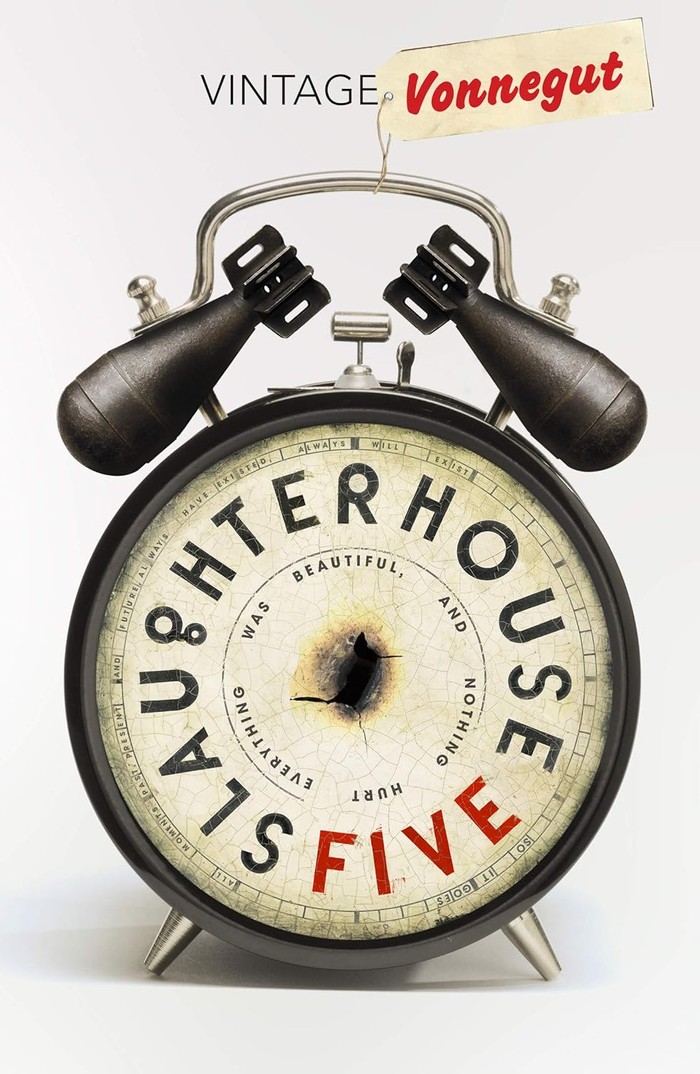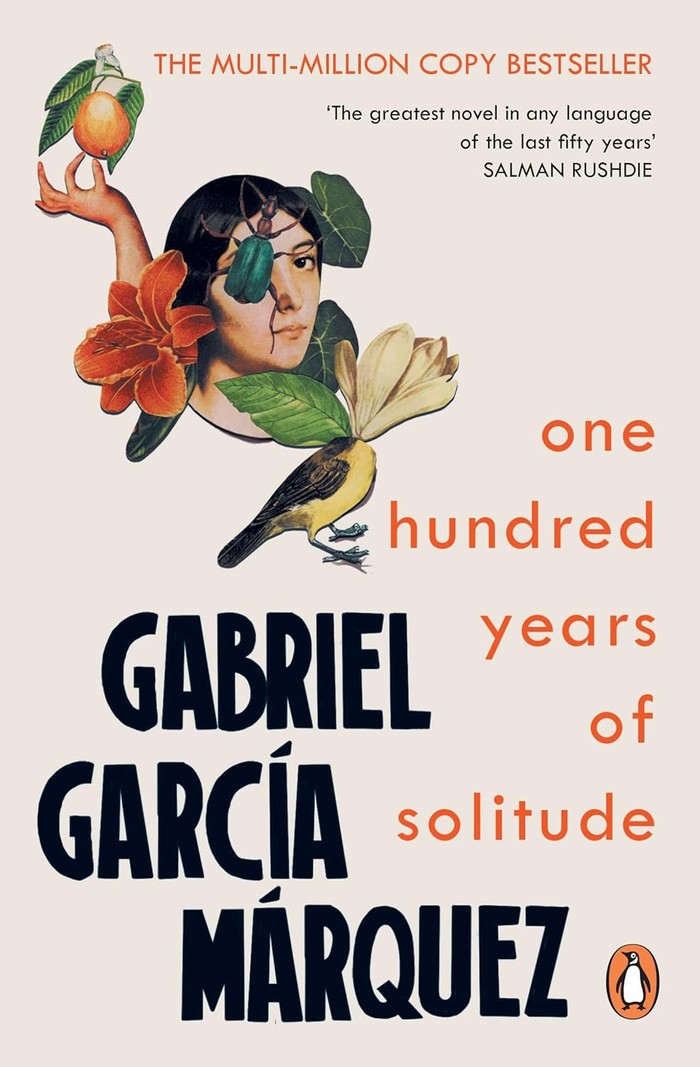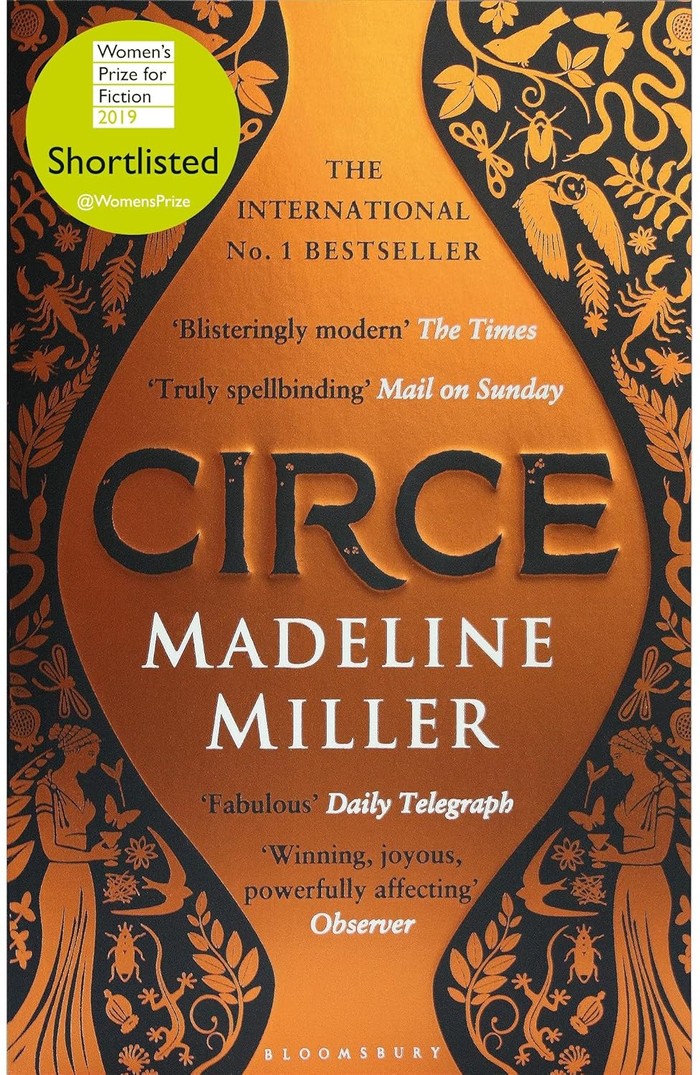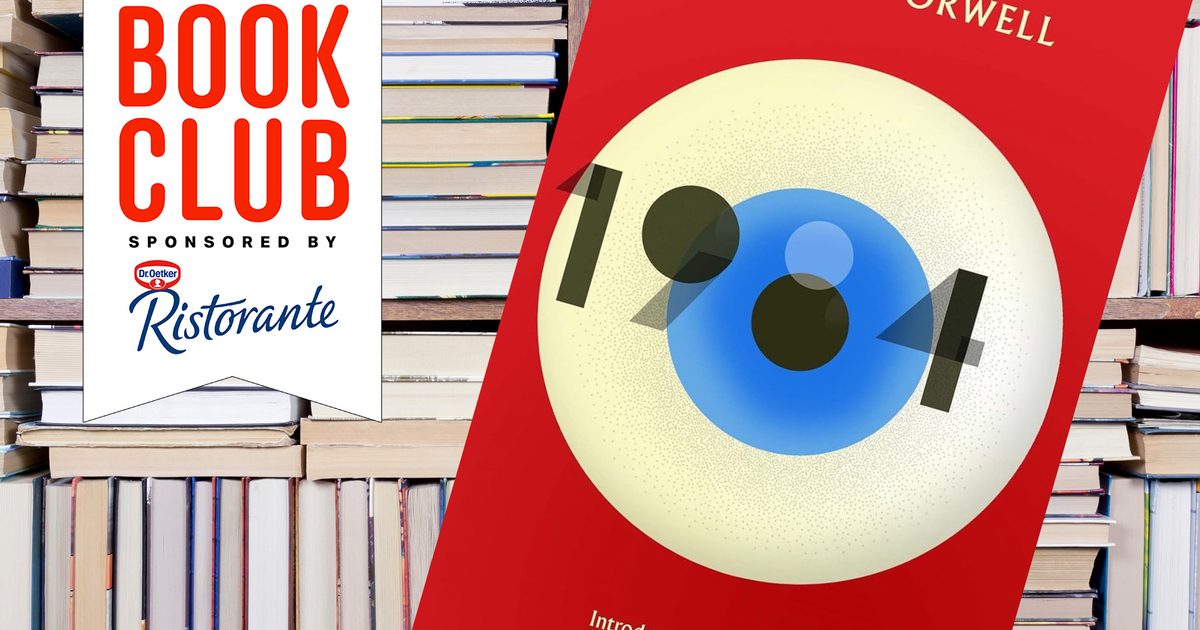Below, we’ve rounded up 25 of our favourite opening lines in literature. Some are iconic. Some are criminally underrated. All of them are unforgettable.
1. The Lion, the Witch and the Wardrobe by CS Lewis (1950)
“Once there were four children whose names were Peter, Susan, Edmund, and Lucy. This story is about something that happened to them when they were sent away from London during the war because of the air-raids.”
If we weren’t ready to take a trip to Narnia before this opening line, we certainly are now. With two simple sentences, CS Lewis not only introduces us to the four main characters but also piques our curiosity. If being evacuated from London during World War II isn’t the most interesting thing that happens to these children, then what on Earth is?
2. Red Mars by Kim Stanley Robinson (1992)
“Mars was empty before we came. That’s not to say that nothing had ever happened.”
Long before the era of billionaire space races, Kim Stanley Robinson took us to Mars in this daring sci-fi trilogy. These two opening lines are quiet but deeply unsettling, raising more questions than they answer. It sets the tone for the epic, philosophical and political narrative that unfolds.
3. Fahrenheit 451 by Ray Bradbury (1953)
“It was a pleasure to burn.”
An unforgettable opening that is as concise as it is provocative. The words “pleasure” and “burn” side by side create an instant sense of unease. What is being burned? Who takes pleasure in it? Bradbury throws us straight into his dystopia without warning.
4. Moby Dick by Herman Melville (1851)
“Call me Ishmael.”
Possibly the most famous opening line in literary history. With just three words, Melville creates intrigue. Is Ishmael our narrator’s real name? Why the ambiguity? It sets a confiding, mysterious tone for this sprawling seafaring novel.
5. Slaughterhouse-Five by Kurt Vonnegut (1969)
Slaughterhouse Five.
“All this happened, more or less.”
It’s rare for a novel to begin by calling its own accuracy into question. But that’s exactly what Vonnegut does here, in a story that blends wartime trauma with time travel and alien abductions. From the jump, we’re warned: truth and fiction will blur, and that’s kind of the point.
6. The Outsider by Albert Camus (1942)
“Mother died today. Or maybe, yesterday; I can’t be sure.”
An emotionally distant narrator delivers news that should be devastating with disturbing detachment. Does he not care? Is something clouding his memory? Camus uses these lines to thrust us into the existential fog that defines The Outsider.
7. Holes by Louis Sachar (1998)
“There is no lake at Camp Green Lake.”
A simple contradiction that instantly captures our attention. If there’s no lake, why is it called Camp Green Lake? The dry humour of this line sets the tone for a novel that’s rich with mystery, mythology, and poignancy.
8. Fear and Loathing in Las Vegas by Hunter S Thompson (1971)
“We were somewhere around Barstow on the edge of the desert when the drugs began to take hold.”
Right away, we know this is going to be a wild ride. The calm geographic reference, followed immediately by the chaos of drug use, throws us headfirst into Thompson’s iconic gonzo narrative.
9. Normal People by Sally Rooney (2018)
“Marianne answers the door when Connell rings the bell.”
Let’s have some more recent examples on this list. There’s a unique brand of opening line where it makes far more sense and has a greater impact upon returning. At first glance, it’s an ordinary moment. But rereading this line after finishing the book reveals just how much it says about the characters. Connell holds the power to knock; Marianne is always the one who opens.
10. One Hundred Years of Solitude by Gabriel García Márquez (1967)
One Hundred Years of Solitude.
“Many years later, as he faced the firing squad, Colonel Aureliano Buendía was to remember that distant afternoon when his father took him to discover ice.”
It’s rare for a protagonist to face near-certain death in the very first line. But here, that grim fate is woven together with something so innocent — like going to get ice with a parent. How does someone who once seemed like a blameless child, thrilled by such a simple joy, end up facing a firing squad? We’re immediately hooked, desperate to know more about his past, his choices, and, of course, does he actually die?
11. Nineteen Eighty-Four by George Orwell (1949)
“It was a bright cold day in April, and the clocks were striking thirteen.”
Wait a second… there’s no 13 on a clock, right? Instantly, the reader is dropped into a world that doesn’t quite make sense. In Orwell’s dystopian future, nothing is certain or fixed — not even time itself, which can be manipulated when the government has toppled God. What follows is a novel that eerily predicted the future with unsettling accuracy.
12. A Series of Unfortunate Events: The Bad Beginning by Lemony Snicket (1999)
“If you are interested in stories with happy endings, you would be better off reading some other book. In this book, not only is there no happy ending, there is no happy beginning and very few happy things in the middle.”
It’s almost as if the author — or narrator — is trying to convince you not to read this novel, and the reverse psychology is incredibly effective. They’re neither wrong nor exaggerating, since what follows is a series of increasingly unfortunate events. Yet you keep reading, desperate for these orphans to finally catch a break.
13. The Martian by Andy Weir (2011)
“I’m pretty much f**ked.”
Before it became synonymous with Matt Damon’s face, this novel grabbed our attention with a simple, powerful statement. The story follows an American astronaut, Mark Watney, who becomes stranded alone on Mars in 2035 and must improvise to survive. Right from the start, we fear for our protagonist.
14. The Crow Road by Iain Banks (1992)
“It was the day my grandmother exploded.”
Sorry, what? Yep, Iain Banks’s brilliant novel opens with that statement, so casually thrown at the reader. The narrator isn’t even directly describing the mind-boggling event, but uses it as a point of reference. Right away, you know you’re in for a humorous and wild adventure.
15. Pride and Prejudice by Jane Austen (1813)
“It is a truth universally acknowledged, that a single man in possession of a good fortune, must be in want of a wife.”
Jane Austen is one of those literary masters who sets the tone and theme with precision right from the very first line, only to cleverly subvert it as the story unfolds. Does this apply to Mr Darcy? What follows this so-called ‘truth’ is a richly layered tale of romance, societal expectations, and the surprising power found in the absence of love.
16. The Magicians by Lev Grossman (2009)
“Quentin did a magic trick. Nobody noticed.”
An often overlooked line, yet one that captures a deep well of sentiment. To have our protagonist’s name as the very first word of the entire novel is powerful, as it firmly centres Quentin’s role in the story that’s about to unfold. And, of course, since this is a novel about a secret college of magic, the idea of a magical “trick” going unnoticed immediately stirs curiosity and wonder within the reader.
17. Paradise by Toni Morrison (1998)
“They shoot the white girl first.”
Nobel laureate Toni Morrison’s 1987 novel opens with a subtle spoiler, and that’s precisely how you know you’re in for something extraordinary. Right from the first words, we’re gripped with curiosity, desperate to uncover more about the story’s secrets. Yet Morrison masterfully draws us in at a slow, deliberate pace, teasing out the narrative with a haunting rhythm that lingers long after the opening line.
18. Circe by Madeline Miller (2018)
Circe by Madeline Miller (2018).
“When I was born, the name for what I was did not exist.”
This line instantly establishes a sense of otherness, foreshadowing Circe’s unique journey and complex identity. It emphasises that she doesn’t fit neatly into the traditional mythological world of gods and nymphs. Since much of the novel revolves around her profound isolation, it’s the perfect way to prepare the reader for her solitary, transformative path.
19. The Secret History by Donna Tartt (1992)
“The snow in the mountains was melting and Bunny had been dead for several weeks before we came to understand the gravity of our situation.”
Scene, character, and plot — the essential ingredients of a novel — are all captured in a single opening line. From the very first sentence, Tartt sets the tone for her dark comedy. We know death is inevitable, and we know who has died, but we have no idea how or why it took so long for them to grasp the true “gravity of [their] situation.”
20. The Book Thief by Markus Zusak (2005)
“Here is a small fact: You are going to die.”
Meet your narrator: Death. Yes, that’s who will be telling this story. This stark opening immediately establishes the themes of mortality and the inevitability of death that run throughout the novel. Set in Nazi Germany, the story naturally carries darker tones, even as it follows an adolescent girl. By acknowledging death upfront, the narrative makes the grim reality almost more bearable to face. Death becomes not something to fear, but an inevitability woven into every moment of the story.
“As Gregor Samsa awoke one morning from uneasy dreams he found himself transformed in his bed into a gigantic insect.”
Kafka’s most famous short story plunges us straight into the middle of the action. Our protagonist is a cockroach — an enormous one at that — and from here, things are only going to spiral further downhill. This surreal and unsettling opening immediately sets the tone for a tale of alienation and absurdity that lingers long after the last page.
22. Gone with the Wind by Margaret Mitchell
“Scarlett O’Hara was not beautiful, but men seldom realized it when caught by her charm as the Tarleton twins were.”
First things first, it’s unnerving to have the lead female — the love interest to come — described as “not beautiful”. Yet this line also highlights a key aspect of her character: a captivating charm that often outshines her physical appearance. It introduces the Tarleton twins, two of the first to be charmed by Scarlett, and sets the tone for the novel by hinting at her self-centred nature and remarkable ability to manipulate those around her. From the very start, we sense that Scarlett is a complex character whose allure goes far beyond looks.
23. Things We Never Got Over by Lucy Score (2022)
“I wasn’t sure what to expect when I walked into Café Rev, but it sure as hell wasn’t a picture of myself behind the register under the cheery headline ‘Do Not Serve.’”
The moment we meet the narrator, Lucy Score throws us straight into a moment of shock and intrigue. Walking into Café Rev, she’s blindsided by a photo of herself behind the register with a glaring “Do Not Serve” warning. It’s a clever way to hook the reader immediately; who put up the sign, and why? From this surprising and tense start, we know we’re in for a story full of secrets, humour and emotional twists.
24. Gone Girl by Gillian Flynn (2012)
“When I think of my wife, I always think of the back of her head.”
From the very first sentence, Gillian Flynn lets us know this isn’t your typical love story. “When I think of my wife, I always think of the back of her head” is a line that feels romantic… until it doesn’t. It’s intimate, but also distant, even a little sinister. Why the back of her head? Why not her smile, her laugh, her eyes? That subtle unease is the perfect entry point to a story about manipulation, perception, and the terrifying complexities of modern marriage.
25. A Tale of Two Cities by Charles Dickens (1859)
“It was the best of times, it was the worst of times, it was the age of wisdom, it was the age of foolishness, it was the epoch of belief, it was the epoch of incredulity, it was the season of Life, it was the season of Darkness, it was the spring of hope, it was the winter of despair, we had everything before us, we had nothing before us, we were all going direct to Heaven, we were all going direct the other way-in short, the period was so far the like present period, that some of its noisiest authorities insisted on its being received, for good or for evil, in the superlative degree of comparison only.”
Let’s round off this list of the best opening lines with a long one, and one of the most iconic. While it may be lengthy, the power of Dickens’s opening is undeniable. Not only does it set the tone for the novel — urging readers to pay attention to duality and contradiction — but it also strikes a deeply poetic chord. In just one paragraph, Dickens captures the paradoxes of human experience: joy and sorrow, wisdom and foolishness, light and darkness. It’s both a time capsule of a turbulent era and a timeless reflection on the nature of life itself.
For all the latest RT Book Club news, interviews, Q&As with the authors, reviews of previous books and more, visit The Radio Times Book Club sponsored by Dr. Oetker Ristorante.
